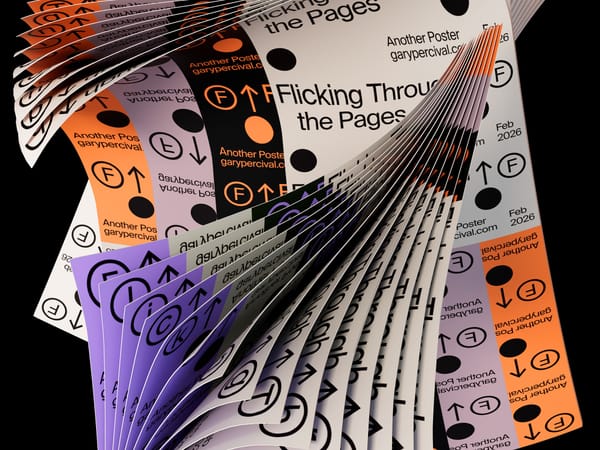The power of collaboration in freelancing
As a freelancer, you know the importance of networking and building relationships with other professionals.

As a freelancer, you know the importance of networking and building relationships with other professionals.
But what about working collaboratively? Whether you're teaming up with another designer for a project or working with a writer to create content, collaborating can be an extremely powerful tool in your freelancing arsenal.
Here's why collaboration can be so valuable and how to get started.
1. What is collaboration and why is it important in freelancing?
Freelancing can be a lonely business.
You're out there on your own, working from home (or a coffee shop or wherever you please), with no one to bounce ideas off of, no one to help you meet a deadline, and no one to commiserate with when things get tough.
But what if there was another way? What if freelancing could be more like working in an office with all the benefits of collaboration that come with it?
The process of working together to achieve a common goal is known as collaboration. When it comes to freelancing, collaboration can take many forms, from teaming up with another freelance designer on a project to seeking feedback from clients on drafts of your work.
The benefits of collaboration are many: You can use a second set of eyes to look over your work and check for mistakes, bounce ideas off each other, learn from past experiences and enjoy the company.
2. How can freelancers collaborate with one another to get more work done and improve their businesses overall?
For people who want to work on their own terms, freelancing is a popular career option.
Freelancers often have greater flexibility in the types of jobs they take and control over where they work but it can be hard when you're working by yourself. Sometimes freelance projects are so large that it's impossible to do them all alone or freelance professionals need help with certain aspects of their business—but how can freelancers collaborate with one another?
The answer lies in the freelance networks available today which provide freelance professionals with opportunities to connect remotely and share ideas while still having some independence.
Whether it's through social media groups or online communities and/or networking groups, there are plenty of ways for freelance professionals to find support from other independent workers around the world.
And freelance networks aren't just for freelancers—employers can also take part in collaborative efforts to improve their businesses and become more successful. Collaboration is important for employers, too!

3. How does freelance collaboration work?
When done correctly, freelance collaboration can be a powerful tool for helping freelancers stay on top of their work.
A freelance graphic designer who takes the time to collaborate with other freelance designers will find themselves hopefully with more and better jobs, resulting in more money in their pockets at the end of each month.
What does it mean to collaborate as a freelancer? It could entail communicating with people from all over the world via social media or email or attending conferences where you can meet people in person.
If you live in an area with a high concentration of freelance talent, it may also imply meeting up with other freelance designers in person.
Whatever method you choose, make sure your motivations are positive and leave your ego at the door. Collaboration isn't about who is better than who; it's about forming bonds and making freelance work easier.
4. Different Types of Freelance Collaboration
When most people think of freelance collaboration, they envision a small group of people working together in person on a project, but there are other ways to collaborate that are not typical of a freelance job.
A good example is when a brand and a freelance designer collaborate on a one-of-a-kind collaborative design project that benefits both parties.
If you can't find freelance work in person, why not organise a freelance meetup to see if anyone else is looking? As long as you stay positive and don't feel like you're competing with the people around you, freelance collaboration shouldn't be an issue for any freelance graphic designer.
5. How can you get started collaborating with other freelancers in your industry or field of expertise?
Freelance designers have a lot of knowledge and skills that they could share with others and help them out as well.
Moreover, freelance work also allows people to explore their own interests more deeply by working independently but also collaboratively with others. It is all possible if freelance designers take advantage of these opportunities by getting involved in collaborations.
The first step would be to find someone who shares common interests or experiences as yours to collaborate with—this person should preferably be at a similar level as you (in terms of freelance design skills). Then, make sure to share your freelance work and provide the other person with an opportunity to do freelance work for you.
6. Collaborating with freelance colleagues
There are many ways to collaborate with freelance colleagues:
- You could work together on a project, such as the design of a book cover or website.
- You can share ideas and research.
- You may be able to help each other meet deadlines by swapping tasks that you don't have time for.
- You can help each other find freelance work.
- You could meet up with freelance friends in person to chat, share knowledge and socialise.
- Sharing freelance work is great if you need an extra hand on a project or two, but don't want to go into business with another freelance colleague.
- You can even collaborate on your own freelance business, perhaps hiring freelance colleagues to help you with specific tasks or projects.
7. The freelance community is welcoming
Freelance work isn't just about making money—it's also about sharing ideas and helping each other out.
If you're new to freelancing, you might feel like freelance work is lonely. But it doesn't have to be!
- You can find freelance colleagues via social media channels such as Twitter and Facebook
- Join online freelance groups or forums where people discuss ideas and share knowledge
- Meet other freelancers at in-person events
- For specific types of freelance work, you might even be able to collaborate via freelance job-sharing where one of you works in the day and the other in the evening.
There are many ways freelance colleagues can help each other out—don't feel isolated or alone!
Take a look at these resources for freelance collaboration:
- Social media channels
- Online freelance forums
- In-person freelance meetups
- Freelance job sharing

8. Are there any potential challenges or drawbacks to working collaboratively as a freelance professional? If so, what are they and how can they be overcome/managed effectively?
The freelance life can be a lonely one but it doesn't have to be.
When you work collaboratively with other freelance professionals, you can enjoy all the benefits of an office environment, including idea sharing, deadline assistance and moral support. But there are some potential challenges to working collaboratively as a freelance professional.
One challenge is that everyone may not be on the same page when it comes to deadlines or work expectations. This can lead to perplexity and frustration.
Another challenge is that disagreements may arise when multiple people are working on a project. It can be difficult to come to a consensus when everyone has a different opinion.
However, these challenges can be overcome or managed effectively by setting clear expectations upfront, communicating effectively and having an open dialogue with your collaborators.
When you freelance collaboratively, you get the best of both worlds: You can enjoy all the benefits of working in an office but freelance whenever and wherever you please.
9. Tips for avoiding common problems with collaborations
Collaborations can be a great way to get work done efficiently and effectively, but they can also run into problems if not handled properly.
Here are some tips for avoiding common problems with collaborations:
- Before beginning work, ensure that everyone is on the same page. This means agreeing on deadlines, project scope and how the work will be divided up.
- Maintain frequent and clear communication. This is especially important during the early stages of a project when misunderstandings are more likely to occur.
- Be flexible. Things will inevitably change as a project progresses; be prepared to adapt accordingly.
- Respect each other's time and workloads. Don't take advantage of your collaborators or ask them to do more than their share of the work; everyone involved should be putting in an equal amount of effort.
- Don't let your freelance career get you down. Working on projects with other people will allow you to bounce ideas off each other, save time and resources and help you avoid burnout.
- Collaborating is not for everyone!
10. Final thoughts on the power of collaboration in freelancing
Collaborating with other freelancers is an excellent way to develop your own skills and expand your network of contacts.
If you're considering becoming a freelancer or are already one and experiencing isolation, there's no reason why collaboration cannot help.
There may be some disadvantages as well, such as disagreements over the amount of work that each person should perform during collaboration. However, if everyone agrees on clear objectives and processes from the start, these difficulties should be manageable.
As long as everyone has good intentions and works hard together, it won't take long before you'll wonder what took so long to give it a go!
If you're interested in receiving additional tips on working alone, sign up for my newsletter below. Every other week, I'll send you articles and resources that may help you navigate the freelance world a little bit easier.



